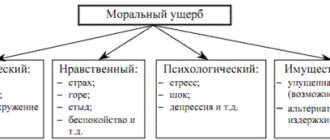What is state duty
In Art. 333.16 of the second part of the Tax Code of the Russian Federation, the legislator answered the question of what a state duty, or state duty, is - this is a fee levied on citizens or legal entities when applying to government agencies to perform legally significant actions. Such actions are listed by law; each of them has its own fee from the applicant in favor of the state.
The state duty is established and regulated by Chapter 25.3 of the Tax Code of the Russian Federation. It refers to federal taxes, that is, regional authorities do not have the right at their level to establish any rules regarding state duties. But most of the funds are transferred to local budgets.
How received funds are distributed between budgets is specified in the norms of the Budget Code of the Russian Federation. According to the general principle set out in Art. 50 of the Budget Code of the Russian Federation, state duty is credited to the federal budget, for which there is no established rule for crediting to the regional budget. In practice, based on 61.1 - 61.6, this means that the majority of funds go to the local budget of the constituent entity of the Russian Federation. The federal budget includes amounts paid for the consideration of a case in arbitration, the Supreme or Constitutional Court, for the registration of legal entities or the registration of changes made to the constituent documents of legal entities. In accordance with the law, when a state tax is collected from the local budget by a court decision, this is legal, although the tax is federal.
Payers
The payer of the state duty can be any person - both legal and natural. We become duty payers when:
- we apply for the performance of legally significant actions to the authorities authorized to perform them (including a notary or the court);
- We act as defendants in courts (at any level), where the decision is not made in our favor, and the plaintiff in the case is exempt from paying state fees.
The simplest example: paying a fee when filing an application for marriage or divorce at the registry office, when receiving a copy of a birth certificate, etc.
What is the state duty paid for?
The state duty is paid for the performance by state bodies of legally significant actions in relation to the citizen or organization that applied for their commission.
Legally significant actions for which a fee must be paid are listed in the Tax Code.
In Art. 333.17 – 333.33 of the Tax Code of the Russian Federation indicates what the state duty is paid for:
- when applying to courts - both arbitration and general jurisdiction, to magistrates;
- when applying to the Constitutional Court of the Russian Federation and constitutional (statutory) courts of the constituent entities of the Russian Federation;
- when contacting a notary to perform notarial acts (for example, drawing up a power of attorney);
- for state registration of acts of civil status (registration of marriages, births, deaths, divorces, etc.);
- upon receipt of passports of Russian citizens and foreign passports;
- when acquiring Russian citizenship;
- for state registration of computer programs, databases;
- for state registration of medicinal products;
- for state registration of legal entities, political parties, media, issues of securities, property rights, vehicles;
- for the right to use the names “Russia”, “Russian Federation” and words and phrases formed on their basis in the names of companies;
- for the right to export cultural property;
- for issuing permits for the export from the territory of Russia, for the import into its territory of species of animals and plants falling under the Convention on International Trade in Endangered Species of Wild Fauna and Flora;
- other legally significant actions.
The specifics of paying state duty depending on the type of legally significant actions performed, the category of payers or other circumstances are established by Articles 333.20, 333.22, 333.25, 333.27, 333.29, 333.32 and 333.34 of the Tax Code of the Russian Federation.
State duty: payment, details, receipt, payment
3. When filing claims of a property nature, administrative claims of a property nature and (or) claims (administrative claims) containing simultaneously claims of a property and non-property nature to courts of general jurisdiction, as well as magistrates, the payers specified in paragraph 2 of this articles are exempt from paying state duty if the cost of the claim does not exceed 1,000,000 rubles. If the value of the claim exceeds 1,000,000 rubles, the said payers shall pay the state duty in the amount calculated in accordance with subparagraph 1 of paragraph 1 of Article 333.19 of this Code and reduced by the amount of the state duty payable if the cost of the claim is 1,000,000 rubles. 25) for state registration of rights, restrictions (encumbrances) of rights to land plots from agricultural lands, transactions on the basis of which rights to them are limited (encumbered), with the exception of legally significant actions provided for in subclauses 22.1 and 24 of this clause - 350 rubles ;
Please note => Housing Subsidy for Large Children Calculator 2019
Payment procedure and terms. Refund of state duty
The state fee is charged for a subsequent legally significant action and is therefore paid in most cases before it is completed. The Tax Code specifies the following deadlines for payment of duties:
- when applying to the courts - before filing a request, petition, application, statement of claim, complaint;
- when applying for notarial acts - before performing notarial acts;
- when applying for the issuance of documents (duplicates) - before the issuance of these documents (duplicates);
- when applying for an apostille - before the apostille is affixed;
- when applying for state registration of rights, restrictions, agreements, etc. - before submitting the relevant applications, and if they were submitted electronically - before accepting them for consideration;
- when performing other legally significant actions - before submitting applications and (or) documents to perform such actions or before submitting the relevant documents.
Defendants who lose a court dispute contribute funds to the budget after the court decision enters into legal force on a voluntary basis (Article 318 of the Tax Code of the Russian Federation establishes a period of 10 days from the moment the decision enters into force), otherwise the amount must be forcibly collected by bailiffs with the payment of an enforcement fee.
The specifics of paying state duty for taking actions to develop state policy and legal regulation in the field of production, processing and circulation of precious metals and precious stones are established in Article 333.32 of the Tax Code of the Russian Federation.
The Tax Code of the Russian Federation does not indicate how the state duty is paid, the basic principles of payment:
- is carried out in the manner established by the authorized body in instructions, administrative regulations;
- carried out in banks through an operator or terminal, an ATM, if there is such a possibility and the government agency will accept the check as a payment document, or online (through the website or application of banks, for example, Sberbank Online), if this is allowed;
- the details are indicated by the government agency, they can be found on the official websites of the courts, the tax office, and can be checked in the branches;
- in some cases, confirmation of payment is not required when applying; the government agency checks the deposit of funds independently (for example, when submitting applications to the registry office); when filing a statement of claim in court, an application to the Federal Tax Service for registration of a legal entity, you will need to attach the original payment document (receipt, check);
- the applicant or another person has the right to contribute funds; the other person does not have the right to demand the return of the deposited funds.
The state duty is paid in cash or non-cash form at the place where the legally significant action was performed. Document confirming payment:
- receipt - if the fee was paid in cash; issued either by a bank, or by an official or cash desk of the government agency to which the payment was made;
- payment order with a bank mark - if the fee was paid in cashless form.
Foreign organizations, foreign citizens and stateless persons pay state fees in accordance with the general procedure.
Deferment or installment payment of the state duty is granted for a period of up to one year at the request of the interested person. Interest is not charged in case of installments.
Paid state duty may be returned in the following cases:
- If it is overpaid (the amount of payment is greater than the established fee).
- If the court returned the application or complaint, refusing to consider it.
- If the notary refuses to perform notarial acts.
- If a person refuses to perform an action for which a state fee has been paid, before contacting a government agency.
- If a citizen is denied a passport (in cases specified by law).
- In some other cases.
IMPORTANT!
The fee paid for state registration of rights to real estate, transactions with it, registration of a legal entity in case of refusal of state registration cannot be returned.
To return the amount of the state duty, you must, within 3 years from the date of payment, submit an application to the state body performing the actions for which this duty was paid. The application is accompanied by a receipt confirming payment, a decision to return the complaint, claim, leave them without consideration, etc. The overpaid amount must be returned within 1 month.
IMPORTANT!
The state fee is not paid if changes to the document are caused by an error made through the fault of the body or official who issued the document.
Courts of general jurisdiction, justices of the peace, arbitration courts, the Constitutional Court of the Russian Federation and constitutional (statutory) courts of constituent entities of the Russian Federation are given the right to exempt the payer from paying state duty, based on his property status.
IMPORTANT!
An exception was made for residents of Crimea and the federal city of Sevastopol. When exchanging Ukrainian documents for Russian ones (driver's license, registration certificates for real estate, etc.), there is no need to pay a state fee (clauses 29-31 of Article 333.25 of the Tax Code of the Russian Federation). If you lose a new document or need to reissue it, you will have to pay a state fee.
Receipt for payment of state duty: validity period
- Transactions on registration of rights to real estate have a clear procedure for regulation, therefore all terms of their payment are regulated by law. As a rule, payment is made on the eve of the conclusion of the transaction or on the same day, but before the procedure for registering the right. The state duty will be valid for one calendar year, but in case of a reasoned refusal to register a real estate transaction, the payment will be non-refundable.
- For a vehicle driver's license - if you have a document confirming payment of the payment, you can apply for a driver's license within one calendar year.
- The state fee for registering a car is also valid for a year and must be paid at the time of registration of the vehicle - no later than 10 days from the date of purchase of the car or other transport.
- The validity period of the paid state fee for issuing a foreign passport, regardless of whether it is an old or new sample and whether the fee was paid through the State Services website, bank or ATM, will also be 1 year.
- Regarding the state fee for issuing or replacing a Russian passport, the validity of the state fee for these actions will be limited to the period of replacement of the passport - no later than 1 month after reaching 20, 45 years of age and from the moment of changing the last name, first name or patronymic.
- When registering or dissolving a marriage, the marriage or divorce procedure is carried out a month after applying to the registry office or another period if there is a queue, respectively, exactly this period - 1 calendar month - will be the state duty for these actions.
Please note => Do I need to change my health record when changing my last name?
If persons who filed an application for divorce or marriage registration did not appear after 1 month to complete the procedure or received a reasoned refusal (to register a marriage), in accordance with Article 333.40 of the Tax Code of the Russian Federation, the paid state duty is not refundable.
- The amount of court state fees depends on the amount specified in the statement of claim and directly depends on it. If during the court hearing the amount of the claim changes, within the period established by law the citizen will be obliged to make an additional payment or return the overpaid amount.
State duty amounts
In the Tax Code, the amount of state duty is established for each type of legally significant action; it also depends on the category of payers. All sizes are established in articles 333.19, 333.21, 333.23, 333.24, 333.26, 333.28, 333.30, 333.31, 333.32, 333.32.1, 333.32.2, 333.33 of the Tax Code of the Russian Federation.
The specifics of paying state duty on various grounds are regulated by Articles 333.20, 333.22, 333.25, 333.27, 333.29, 333.34 of the Tax Code of the Russian Federation.
IMPORTANT!
From January 1, 2021, the amount of the state fee for conducting bankruptcy proceedings for an individual depends on the status of the applicant. For an individual, its amount will be 300 rubles, for a legal entity - 6,000 rubles. These changes are provided for in the new edition of paragraphs. 5 p. 1 art. 333.21 of the Tax Code of the Russian Federation, they were introduced by Federal Law No. 407-FZ of November 30, 2016. Previously, when filing an application to declare a debtor insolvent, both organizations and citizens had to pay a state fee of 6,000 rubles, but since 2017, citizens have paid an amount 20 times less than legal entities for the bankruptcy procedure.
Features of paying state fees to court in 2021
If there is no receipt, the claim will be returned to the applicant without reviewing it. According to clause 1 of clause 1 of Article 333.19 of the Tax Code of the Russian Federation, the state duty is determined based on the price of the claim: It turns out that the amount of payment is determined by the price of the claim, but cannot be less than 400 rubles. But in some cases the duty is paid as a fixed amount. Art. 22 of the Code of Civil Procedure of the Russian Federation On the amount of mandatory state fees in courts of general jurisdiction, Art. 24 Code of Civil Procedure of the Russian Federation On the concept of the court of first instance, Art. 333.19 Tax Code of the Russian Federation On the rules for calculating and amounts of state duty Art. 333.19 Tax Code of the Russian Federation Applicable to obtaining a court order Art. 333.19 Tax Code of the Russian Federation On claims of a property or non-property nature Art. 333.41 Tax Code of the Russian Federation On the possibility of installments when paying a fee
Please note => Benefits for utilities for medical workers of the Guz of the Komi Republic upon retirement
Enrollment
According to the Budget Code of the Russian Federation, which budget the state duty goes to depends on its purpose.
100% of the state duty is credited to the budget of the constituent entities of the Russian Federation:
- in cases considered by constitutional (statutory) courts;
- for performing notarial acts;
- for state registration of interregional, regional and local public associations, their branches, for state registration of changes to their constituent documents;
- for state registration of regional branches of political parties;
- for state registration of a vehicle pledge agreement, including the issuance of a certificate and its duplicate;
- for the issuance of a qualification certificate granting the right to carry out cadastral activities;
- for issuing a certificate of state accreditation of the regional sports federation;
- for registration of mass media, the products of which are intended for distribution primarily in the territory of a constituent entity of the Russian Federation, for issuing a duplicate certificate of such registration;
- for actions of authorized bodies related to licensing the use of subsoil plots of local significance;
- for the actions of authorized bodies related to licensing the procurement, processing and sale of non-ferrous and ferrous scrap metals;
- for the provision of licenses for the retail sale of alcoholic beverages issued by executive authorities of the constituent entities of the Russian Federation;
- for actions of executive authorities of constituent entities of the Russian Federation related to licensing and accreditation of educational institutions;
- for granting a license for the production, storage and supply of alcohol-containing non-food products, in part made from confiscated raw materials;
- for issuing accreditation certificates in order to recognize the organization’s competence in the relevant field of science, technology and economic activity to participate in control activities;
- for the actions of executive authorities of the constituent entities of the Russian Federation in affixing an apostille on documents on education, academic degrees and titles;
- for the issuance by the executive authority of a constituent entity of the Russian Federation of a special permit for the movement on roads of vehicles transporting dangerous, heavy and (or) large-sized cargo.
100% of the state duty is credited to the settlement budget:
- for the performance of notarial acts by officials of local government bodies of the settlement authorized to perform notarial acts, for the issuance by the local government body of the settlement of a special permit for the movement of a vehicle transporting dangerous, heavy and (or) large-sized cargo on a highway.
100% of the state duty is credited to municipal budgets:
- in cases considered by courts of general jurisdiction, justices of the peace (with the exception of the Supreme Court of the Russian Federation);
- for state registration of vehicles, including temporary registration at their place of residence, for issuing various certificates to car owners, etc.;
- for issuing permission to install an advertising structure;
- for the issuance by a local government body of a municipal district of a special permit for the movement of a vehicle transporting dangerous, heavy and (or) large-sized cargo on a highway;
- for the performance of notarial acts by officials of local government bodies of a municipal district, authorized in accordance with the legislative acts of the Russian Federation to perform notarial acts in a populated area that is located on an intersettlement territory and in which there is no notary.
The budgets of city districts and municipal districts, federal cities of Moscow, St. Petersburg and Sevastopol are subject to crediting the state duty for the provision of licenses for the retail sale of alcoholic beverages issued by local governments at a rate of 100%.
State duty: payment, details, receipt, payment
12) individuals recognized in accordance with the established procedure as needing to improve their housing conditions - for certifying transactions for the acquisition of residential premises, fully or partially paid for through payments provided from the federal budget, budgets of constituent entities of the Russian Federation and local budgets; 19) for issuing permits to conduct clinical trials of medicinal products for medical use on applications submitted before the entry into force of the Federal Law of April 12, 2010 N 61-FZ “On the Circulation of Medicines”, as well as on applications submitted after the entry into force by virtue of Federal Law No. 61-FZ of April 12, 2010 “On the Circulation of Medicines”, on the basis of examinations carried out before the Federal Law of April 12, 2010 No. 61-FZ “On the Circulation of Medicines” came into force;
01 Jan 2021 marketur 1028
Share this post
- Related Posts
- Explanatory note for civil servants on accounts
- Find out rent arrears online through Sberbank online
- Fine for driving without a sales contract
- Land categories in Russia as a percentage for 2019







